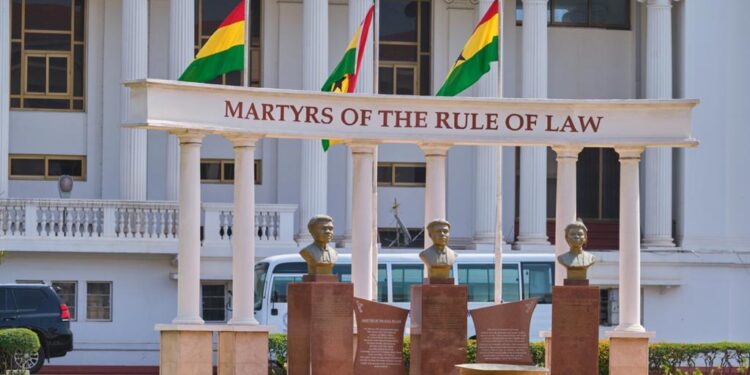Raised funds in its name, bought land for himself: Korean Missionary loses title to church
"Therefore, whatever has been acquired by any monies that are proven to be part of the funds from Korea is deemed to be for the benefit of the church" the court held

A missionary of Korean Identity has lost the title to a disputed land to a Tema church owing to the fact that he bought the said land with funds raised in the church’s name.
In addition to this, it was held that whatever was acquired by any monies proven to be part of the funds raised by SOON BOON SEO remains the property of the church.
The Korean Missionary, David Soon Boon SEO, who lived in Tema, promised to raise funds for the church on a projected trip to Korea.
Prior to his departure, he made a video film of the church members who lived in the Ashaiman environs to depict that they lived in abject poverty in order to attract the sympathy of donors.
However, upon his return from Korea, he did not disclose the exact amount of money raised even though he acknowledged that the benefactors had given to this cause.
Instead, SOON BOON SEO bought land for himself using the funds raised in the name of the church.
Subsequently, the pastor of the church, Ben Adjei, and the church, acting by its trustees, sued him in the Circuit Court for a declaration of title to the land in dispute, recovery of possession, perpetual injunction, an order for accounts, and other orders.
The Circuit Court granted to the reliefs claimed, except the one for accounts.
SOON NOON SEO thereupon appealed to the Court of Appeal upon the sole ground that the judgment was against the weight of the evidence. The court affirmed the decision of the Circuit Court and dismissed the appeal.
SUPREME COURT
Further dissatisfied with these judgments, the Korean missionary went to the apex court challenging inter alia the jurisdiction of the Circuit court to handle such a matter.
He averred that the Circuit Court’s jurisdiction does not include jurisdiction to entertain a cause or matter the determination of which involves the application of rules of equity or principles of trusts, such as in the instant case.
This ground was however dismissed by the apex court affirming the lower court’s jurisdiction in the matter.
The applicant also challenged the ‘locus standi’ of the pastor of the church as a party to the suit since the subject matter of the action was being claimed against an asset of the church rather than a joint property of the church and the pastor.
On this score, the Supreme Court agreed with the appellant and thus held that the first respondent was an unnecessary party.
Additionally, the applicant’s counsel averred that the Korean missionary was merely a “gratuitous promissor” and, as such, he was not accountable to the church which is a “bare promissee/volunteer”, having furnished no consideration for the promise made to it.
The Court disagreed on this score holding that ‘The 2nd Respondent was entitled in law to have a legitimate expectation, based on the pre-departure promise the appellant made assuring it, that the monies to be raised were for its benefit.”
Another ground espoused by the appellant's counsel was on the assumption that the trust created is an express trust and thus required the “three certainties” of intention, subject matter, and objects to be valid.
However, the court established that the fact of the case supported the creation of a constructive trust (an implied trust).
The Supreme Court thus made a finding that the appellant stood in a fiduciary position because he became a nominal owner or controller of something that does not belong to him, and which he had collected in the name of the church.
In conclusion, the court held that whatever has been acquired by any monies that are proven to be part of the funds from Korea is deemed to be for the benefit of the church and thus dismissed the appeal.
Read the full judgment on Dennislaw.


